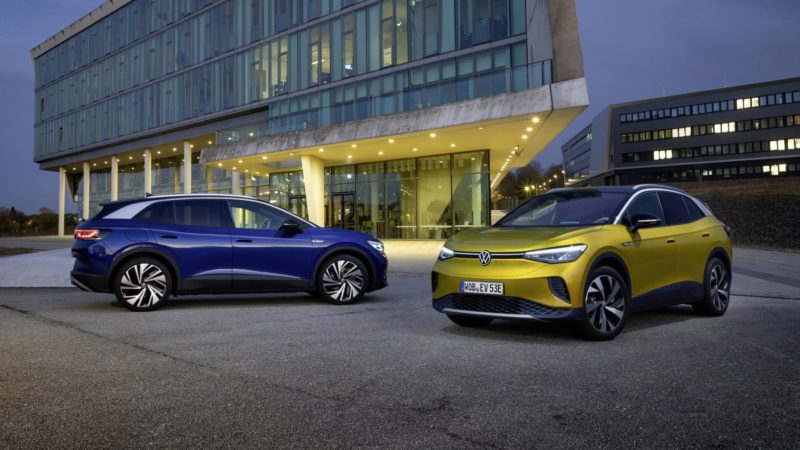Chinese automakers Nio and Xpeng, along with Geely’s Lynk & Co, have joined Volkswagen Group’s open European Union (EU) passenger car CO2 pool, doubling the number of Chinese manufacturers in the pool and taking the total number of manufacturers to 16.
According to Schmidt Automotive Research, the three Chinese automakers joined Volkswagen’s EU CO2 pool, a relatively controversial method that allows automakers to avoid fines resulting from failing to meet the EU’s carbon emission fleet values.
The EU 27 member countries, plus Norway and Iceland (referred to as EU+2), requires passenger car manufacturers to meet a defined mass-adjusted fleet average CO2 target of 95g/km (NEDC drive cycle) or around 120g/km in the WLTP cycle up to 2025.
Such “pooling” efforts allow carmakers to undercut the EU Emissions Trading Scheme (ETS) by counting their fleet as one, readjusting the mass-adjusted fleet numbers.
Over time, Volkswagen’s open pool has incorporated ever more companies looking to minimise the risk of fines for its European vehicles. However, Volkswagen is not the only company to have created such a pool, with Tesla making handsome profits by creating a pool for other legacy car makers.
According to Schmidt Automotive Research, Volkswagen’s pool is now described as a partnership pool between Volkswagen and Chinese automotive giant SAIC, and includes manufacturers including Audi, Bugatti, MG Motor, London EV Company, Seat, and Skoda.
Nio and Xpeng and Geely’s Lynk&Co are relative newcomers to Europe and have limited volumes, which might explain why neither company is required to actively meet their CO2 obligations for 2021.
Nevertheless, Volkswagen confirmed to Schmidt Automotive Research that it remains confident of achieving its 2021 EU+2 CO2 compliance in 2021.
Volkswagen also recently announced a separate 2021 pool, formed with American automotive giant Ford, designed to help the two companies achieve CO2 compliance in the UK which, according to Schmidt, requires independent CO2 fleet targets for the first time this year with following the UK’s exit from the EU.
As already mentioned, Volkswagen’s two CO2 pools are not unique to legacy automakers, with Tesla forming its own CO2 pool back in 2019 with Fiat Chrysler Automobiles. Tesla expanded their pool a year later with the addition of Honda, following the company’s lacklustre sales of its first mass market EV, the retro-inspired Honda e.
Joshua S. Hill is a Melbourne-based journalist who has been writing about climate change, clean technology, and electric vehicles for over 15 years. He has been reporting on electric vehicles and clean technologies for Renew Economy and The Driven since 2012. His preferred mode of transport is his feet.

